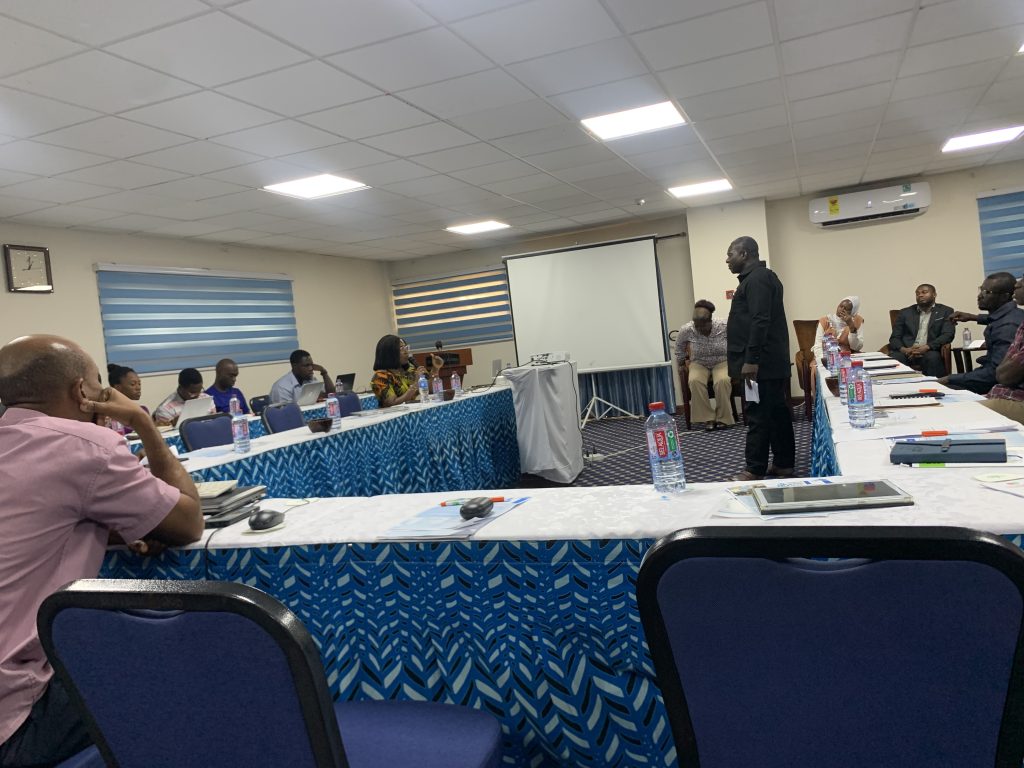By Stanley Senya
Accra, July 10, GNA – Coalition of NGOs in Water and Sanitation (CONIWAS) has held a national stakeholder dialogue to discuss the importance of Water, Sanitation and Hygiene (WASH) in curbing Neglected Tropical Diseases (NTDs) in rural communities of Ghana.
The dialogue saw representatives from IRC, Ministry of Sanitation and Water Resources, Ghana Health Service and NTD Secretariat to share knowledge on the theme: “WASH Priotization And Its Impacts On Social And Economic Development.”
Globally, it has been acknowledged that the provision of safe water, sanitation, and hygiene has broad public health benefits that reduce multiple diseases and contribute to non-disease outcomes.
NTDs are a diverse group of communicable diseases that affect more than a billion people and cost developing economies billions of dollars every year.
Mrs Hameeda Otabil, Municipal Planning Officer of Upper Denkyira East Municipal Assembly (UDEMA), in her presentation, said placing WASH at the forefront of health initiatives was essential for improving community health and reducing the prevalence of infectious diseases such as NTDs.
She said the provision of safe water, sanitation, and hygiene had broad public health benefits that reduced multiple diseases and contributed to non-disease outcomes.
She said a considerable number of citizens also did not have access to improved sanitation, especially in the rural communities.
She called on the government to prioritise and fund and enforce WASH regulations to curtail the spread of NTDs such as elephantiasis, bilharzia, and schistosomiasis in the community.
Speaking about a master plan to eradicate these diseases, she said data collections, inception workshops, training and stakeholder forums would be implemented thoroughly to achieve desired goals.
Mrs Otabil said improved sanitation facilities such as separating patients and staff, men from women toilet facilities were crucial, adding that providing menstrual hygiene facilities and meeting the needs of people with limited mobility was key.
“Hand hygiene materials, either a basin with water and soap or alcohol hand rub, should be available at points of care and toilets facilities,” she said.

During a panel discussion, stakeholders agreed that WASH facilities were critical in the prevention, treatment, and care for all NTDs.
They said behavioural change was a major contributor to preventing the formation of such diseases.
They advised government and sector players to implement WASH policies to ensure personal hygiene and protection of the environment, adding that: “we must target WASH facilities to make sure that we have potable water and toilet facilities in abundance.”
Stakeholders urged all, especially, non-governmental organisations in the Health and WASH sector, to ensure the continuous implementation of hygiene among individuals who live in the rural areas, especially those who dwell near rivers, lakes, and lagoons.
Ghana is endemic in over twelve of the NTDs, with the Central Region implicated in 20 of the 22 (90.9 per cent) Metropolitan, Municipal and Districts Assemblies (MMDAs), including Upper Denkyira East Municipal Assembly.
GNA